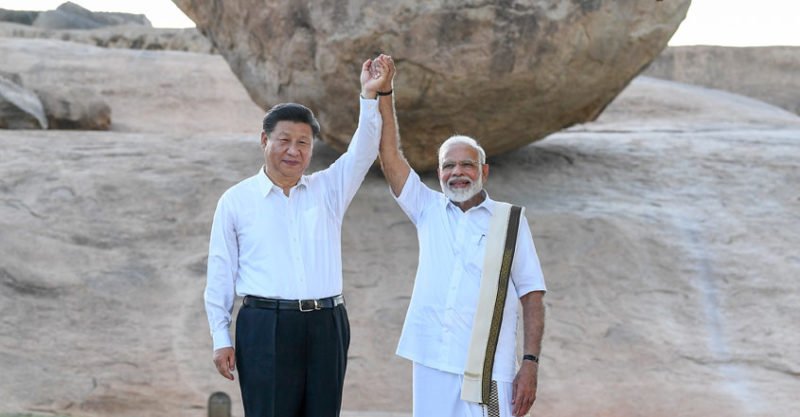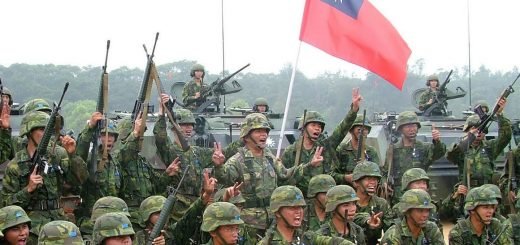Is the United States Meddling in Sino-Indian Ties?

Last month, the Indian Prime Minister had delivered a stunning announcement to Beijing. Delhi had selected to opt-out of current negotiations on a regional multi-party trade deal known as RCEP (Regional Comprehensive Economic Partnership), agreement, which could have resulted in becoming the world’s largest trade pact if all participating members would agree to sign on to it.
The member states listed were: ASEAN (Association of Southeast Asian Nations) members – Brunei, Cambodia, Indonesia, Laos, Malaysia, Myanmar, the Philippines, Singapore, Thailand, and Vietnam; plus Australia, China, Japan, New Zealand, and South Korea.
Beijing was leading RCEP talks and many members had thought that PM Modi bowing out could have spelt doom for bilateral relations between the two Asian giants. Nevertheless, Chinese President Xi Jinping did not seem fazed by the bad news, although he and PM Modi had met shortly beforehand with face-to-face friendship meetings in India.
China’s central government was not panicking since RCEP trade talks were not going smoothly since they had numerous rounds of negotiation starting in November 2012. Delhi had issued the most complaints and they had delayed countries from endorsing the deal because the requirements for RCEP to get implemented was for member states to accept all terms on the proposed trade document.
India was not willing to endorse the agreement, even though much progress had transpired in overall negotiations. Modi’s departure from RCEP seemed all but inevitable due to the country’s ‘trade protectionist policies’ and Beijing had long anticipated it.
Nonetheless, Modi’s brave decision to place “India First,” no longer was the case after Japanese Prime Minister Shinzo Abe declared earlier this week that Tokyo would not support RCEP unless Modi returns back to the fold. Accordingly, it looks highly suspicious that Washington was demanding Delhi pull out of RCEP talks.
Japan had earlier signed a bilateral trade pact with the US and in return, Washington can use Tokyo as a proxy for leverage to ramp up pressure on Beijing as the White House and Chinese officials continue to negotiate a “Phase One” trade agreement.

The strategy would call for Tokyo to walk away from current talks with Beijing until China signs a trade agreement with the United States. From a strategic perspective, that’s brilliant, but Modi looks weak, not strong when walking away from RCEP, as for many, Delhi appears to be taking instructions from Washington on this.
Modi is correct to build a strong India that stands to become very independent-minded. The nation has over 1.2 billion people and could emerge as a diplomatic and economic superpower a few decades later on, but Delhi can only achieve that by supporting a country, which would not be beholden to any other nation for its survival and well-being.
India should understand that great power games are always in a state of flux. Your friend today could be your enemy tomorrow and that’s just a fact of life. Delhi can boost ties with Washington but there’s no permanency by acting in this manner. Delhi by following Washington places them at a lower diplomatic level, which will be much more challenging for them to reverse course if they choose to do so later on.
Yes, Modi is confronting serious territorial disputes in the Kashmir region with its neighbours – China and Pakistan, but Delhi has to fight its own battles and not require Washington and Tokyo to rescue them from yet another international crisis. An independent India should place itself as an equal, not as a subservient, to the world powers.
India’s departure from the RCEP did not instigate bitterness from China as they understood Delhi has supported trade protectionism and for them to change that attitude in domestic politics would be near impossible. Additionally, China and India have long undergone rapid up and down waves in bilateral relations.
Therefore, PM Modi must make a very important decision for his nation: Will he endorse an “India First” foreign policy or will he go “America First?” It’s not an easy question to answer since Washington would retaliate with fury if he goes against them, but India has to take a more courageous stand. They risk being viewed as a submissive power that fears to alienate the ‘Great Powers’ of Washington, Brussels and London.
We can anticipate Modi to reflect more deeply on this matter and don’t be surprised if he chooses to march on the path of “India First” in order to usher the country towards a new era of greatness and glory for the years and decades to come.
Thomas Weir Pauken II’s book, US vs. China: From Trade War to Reciprocal Deal


















